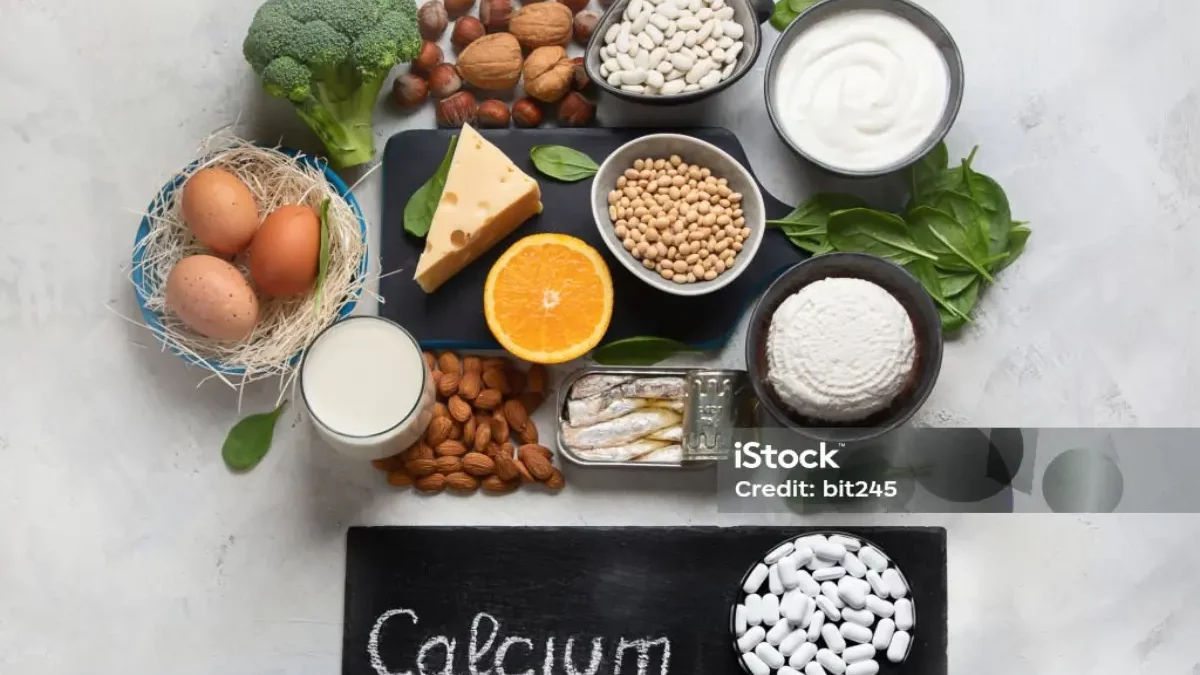Table of Contents
Introduction
Calcium Free Foods – Calcium is a vital mineral in the body that plays a vital role in supporting the functions of different body organs. As it helps build strong bones and teeth and supports the health of muscles, nerves and the heart.
In some health cases, however, high blood calcium levels may exacerbate other health problems, and calcium-free foods are one of the preventive remedies.
What are the most important examples of calcium-free foods? When should you rely on these calcium-free foods?
Calcium-Free Foods?
Finding foods completely calcium-free is almost impossible, so the best way to control calcium levels in your blood is to follow low calcium, mineral, and other vitamin C diet that can cause excessive calcium levels.
The most prominent low calcium foods that may adjust the level of calcium in the blood when eaten moderately by one cup are:
Wild cheese.
Parmesan cheese.
Legumes.
Pinto bean.
Soybeans.
The tempeh.
White beans.
Brown rice.
Seeds of the sun’s dust.
Corn.
Green dandelion.
Chinese cabbage.
The cabbage is red
corn.
Red mustard.
Green turnips.
Calcium Requirements per Person Per Day
After knowing what is a calcium-free menu? Depending on age and type, it is now essential to look at how much calcium an individual may need. The tables explain the daily need for calcium to achieve the nutritional value required to ensure proper nutrition:
Men – The recommended dose of calcium for men by age group includes:
Age Group – The daily need for calcium
19 – 70 years old – 1000 milligrams
71 years and older – 1200 milligrams
Women – The recommended dose of calcium for women by age group includes:
Age Group – The daily need for calcium
19 – 50 years old – 1000 milligrams
51 years and older – 1200 milligrams
The maximum allowable calcium for adults aged 19-50 is 2,500 milligrams, and for those over 51 years of age in 2000 milligrams.
What are the Risks Associated with Calcium?
After learning about a calcium-free menu, let’s now note some of the health risks of eating calcium too much, which are divided into two parts:
Risks Associated with Obtaining Small Amounts of Calcium
Access to small amounts of calcium can cause bone health problems, including the risks:
Incomplete body development for children upon reaching puberty.
Suffering from a fragile bone mass in adults, putting them at risk of osteoporosis.
Calcium should therefore be collected from its various food sources, as the body is unable to produce calcium, and calcium-rich foods include:
Dairy products, such as yoghurt and cheese.
Soft-bone fish, such as salmon, sardines.
Calcium-boosted foods and beverages include cereals, juices, soy drinks, and milk substitutes.
Risks Associated with High Amounts of Calcium
The collection of very high amounts of calcium causes the level of calcium in the blood to increase, often due to the use of calcium supplements, which increases the risk of the following conditions:
Hypercalcemia, which hinders the body’s ability to perform its normal functions.
Increased risk of constipation.
Constrain the body’s ability to absorb other minerals, such as potassium, iron, zinc.
Increased risk of cardiovascular disease and heart attacks.
Increased risk of prostate cancer.
Moderate calcium intake, avoid excessive calcium intake and consult a specialist to determine the appropriate calcium compensation method when suffering from calcium deficiency.
The Relationship between Kidney Stones and Calcium
Many people have misinformation that eating calcium-free foods in the diet may reduce the risk of kidney stones forming. Still, kidney stones are formed when Oxalate is associated with calcium in the bloodstream or urine.
Oxalate is a natural substance produced by the body and is present in fruits, vegetables and nuts. After digestion and absorption of the body, what it needs sends the rest of the waste through the bloodstream to the kidneys. These wastes may crystallize and then bind to calcium, forming kidney stones.
Kidney stones are therefore formed only as the kidneys are associated.
In contrast, oxalate has an association with calcium in the stomach. The body disposes of by coming out with the stool.
To avoid the risk of kidney stones, avoid calcium supplements, and reduce high-oxalate food items, such as beetroot, chocolate, spinach, rand, tea, and some varieties of nuts.


